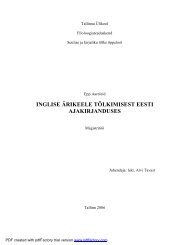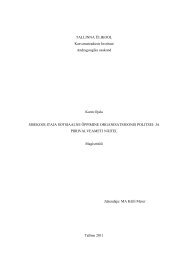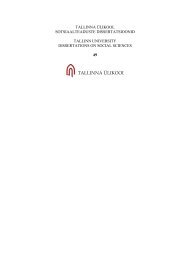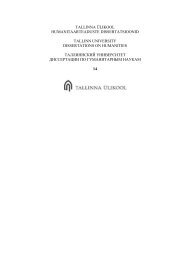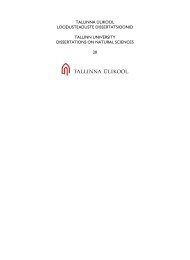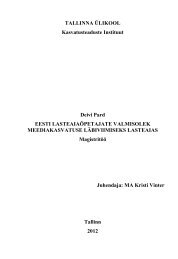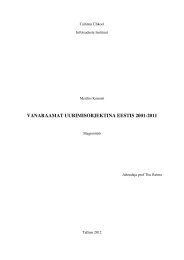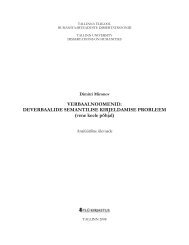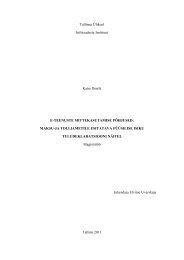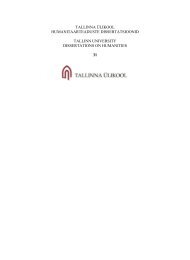Download (1157Kb) - E-Ait
Download (1157Kb) - E-Ait
Download (1157Kb) - E-Ait
You also want an ePaper? Increase the reach of your titles
YUMPU automatically turns print PDFs into web optimized ePapers that Google loves.
may be solved. Through innovation for instance, library staff may use free online facilities to<br />
establish a forum through which they share knowledge on common problems surrounding<br />
their day to day work problems. Skype is one good example which may promote this kind of<br />
online forum.<br />
Knowledge sharing will help Tanzania public university libraries to understand their<br />
customers better. In this era the value of libraries will no longer be in the size of the<br />
collection but will be related to good relationships with users, see more discussion on this in<br />
(Cribb, 2005) and (Broady-Preston, 2006). Libraries need to rethink their relationship with<br />
users. George S. Day and colleague stress the importance of inter-organisational learning and<br />
the value of customer contribution and attributed two thirds of innovation in some industries<br />
with the customer‟s initial suggestions and ideas, see more in section 2.3. Once best practices<br />
resulted from user studies among public University libraries in Tanzania are shared,<br />
improvement on how they handle library users is likely to result. The need to understand<br />
library users better is increasingly important especially when users feel that they can solve all<br />
their information needs through the internet and don‟t need libraries. This is supported by<br />
findings from Broady Preston and Preston suggesting that users information seeking<br />
behaviour and their increased sophistication demand the future role of libraries stress value<br />
added services, see customer capital 2.1.1.<br />
Knowledge sharing will result in efficiency and improved quality. It will help libraries to<br />
carry out work faster and more cheaply due to the re-use of knowledge. Sharing will help<br />
consistency in libraries and improve the quality of outputs due to consistency. It is not a<br />
surprise to find the same book placed in different locations as the result of decisions by two<br />
classifiers. This not only increases the chances of difficult retrieval and time cost but also<br />
suggests a poor quality of decisions which knowledge sharing can easily overcome.<br />
Duplication of efforts cost the organisation more resources and time and this is a result of the<br />
creation of silos in libraries and lack of knowledge sharing strategies.<br />
Knowledge sharing will allow Tanzania public university libraries use the expertise which is<br />
not found in one library but found in other libraries. Sharing will stimulate the collaboration<br />
of Tanzania University Libraries to cross the boundaries of their geographical location. Data<br />
collected shows that the sharing between libraries is mostly done through best practices (15<br />
51




